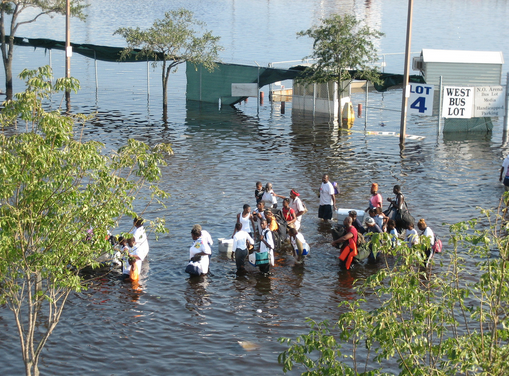Advertisement
Weather Sexism: Female-Named Storms Deadlier, Seen As Less Threatening
Forget the brouhaha over Jill Abramson's firing and questions about sexism running rampant in America's newsrooms: here's some really hard-core sexism that could kill you.
Researchers from the University of Illinois and Arizona State report that female hurricanes have proven to be more deadly than male hurricanes. Why? The researchers theorize that hurricanes with girly names like Alexandra aren't taken as seriously as male-named storms, like Alexander; so, faced with a female storm, people don't prepare as fully, or heed evacuation orders as intently.
As USA Today notes: "The paper claimed that a masculine-named storm would kill about 15 people, but a hurricane of the same strength with a female name would kill about 42."

[Researchers] use more than six decades of death rates from U.S hurricanes to show that feminine-named hurricanes cause significantly more deaths than do masculine-named hurricanes. Laboratory experiments indicate that this is because hurricane names lead to gender-based expectations about severity and this, in turn, guides respondents’ preparedness to take protective action.
And in conclusion, the authors write:
...these findings suggest the value of considering a new system for hurricane naming to reduce the influence of biases on hurricane risk assessments and to motivate optimal preparedness. For media practitioners, the pervasive media practice of giving gendered descriptions of hurricanes should prompt a reconsideration of the use of “he” or “she” when communicating about hurricanes. Finally, making members of the general public aware of the impact of gender biases on subjective risk perceptions may improve preparedness in the face of the next Hurricane Fay or Laura.
More broadly, our findings highlight the importance of understanding the way that category labels may influence responses to natural hazards and other events. When hurricanes and other such events are tagged with specific yet arbitrary labels used for other categories (men/women, animals, flora), one may expect human responses to be influenced by the mental representations associated with those categories. Those representations may then influence subjective risk assessments or indeed any assessment relevant to the mental representation. Thus, a storm named for a flower may seem less threatening than one named for a raptor.
